El Capitan climb: Alex Honnold basks in solo feat glory
- Published
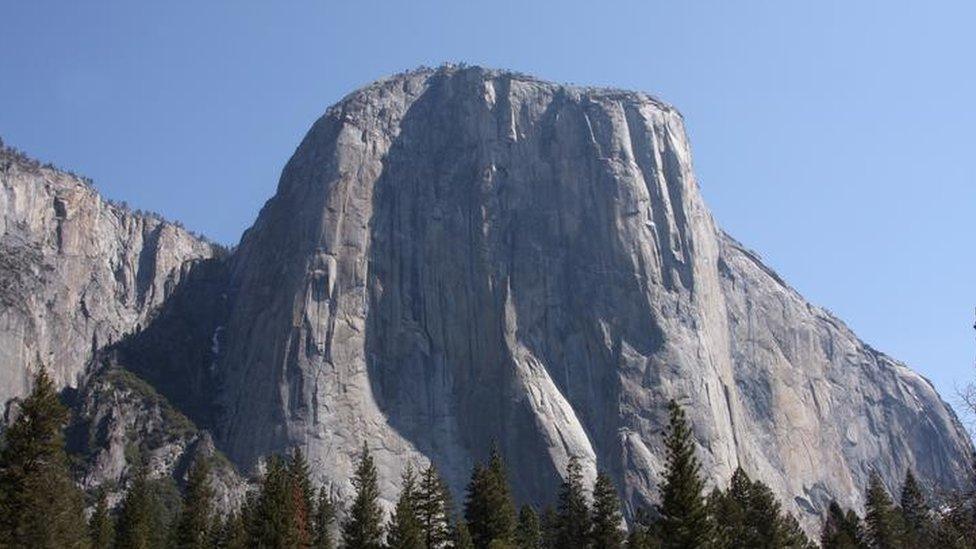
El Capitan is one of the world's favourite challenges for rock climbers
A climber who has become the first person to reach the top of California's El Capitan rock without a rope has described his intense satisfaction.
"It was exactly what I hoped for. I felt so good. It went pretty much perfectly," Alex Honnold said.
His ascent of the 3,000ft (1,000m) rock-face in Yosemite National Park on Saturday has been described as one of the greatest solo climbing feats.
It took Mr Honnold four hours to scale it without ropes or other safety gear.
In places the 31-year-old Californian had to dangle from the mountain by his fingertips.

A picture of Mr Honnold on top of El Capitan was tweeted on Saturday
"At the bottom I was slightly nervous," he told the National Geographic magazine., external "I was slightly tense, but felt really good."
"I didn't have much of a backpack, and the climbing just felt amazing.
"Not dragging 60 meters of rope behind you for the whole mountain, I felt so much more energetic and fresh."
Mr Honnold set off it was "still quite dark", disturbing a wild bear as made his way to the base of the rock's huge granite wall.
He said the hardest part of the climb occurs about 700m (2,300ft) up, where there are only very small handholds.
The climber has been ropeless climbing for about 20 years and had been preparing for the El Capitan ascent for more than 12 months - with time spent training in the US, China, Europe and Morocco.
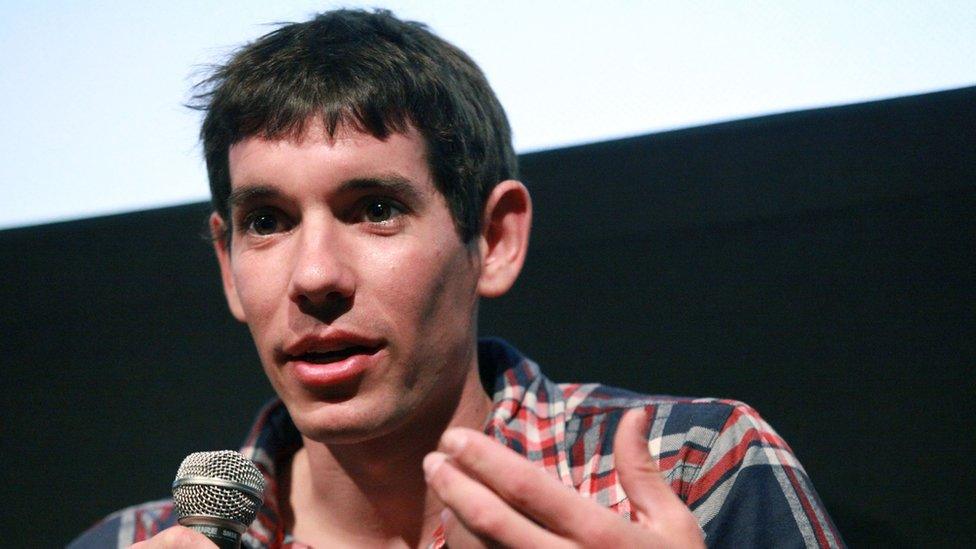
Mr Honnold's achievement has been described as one of the greatest solo rock climbing feats
Only a small group of people knew of his plans to make the ascent and they had promised to remain silent.
"Physically [the climb] is not that hard to execute," he said. "It's more you have to be in exactly the right [mental] place, so I was trying to create the right place," he said.
Experts say the climber's achievement is all the more impressive because it used to take weeks to reach the top even with the aid of a partner and climbing aids.
But speed climbers have more recently made the ascent faster by working in tandem.
In 2015 two climbers made it to the the top without aids, except for harnesses and ropes to prevent deadly falls. But it still took them more than two weeks.
Three legendary rock climbers on American's first iconic climber, Royal Robbins
- Published13 September 2015
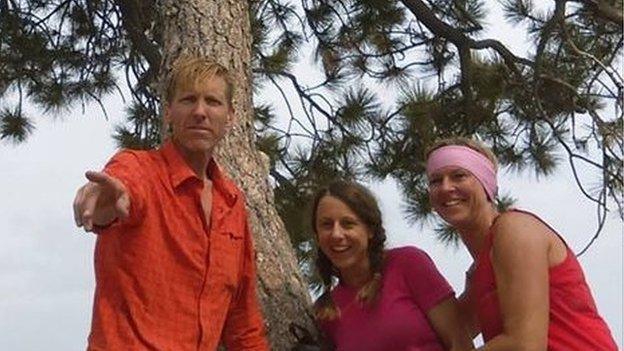
- Published15 January 2015
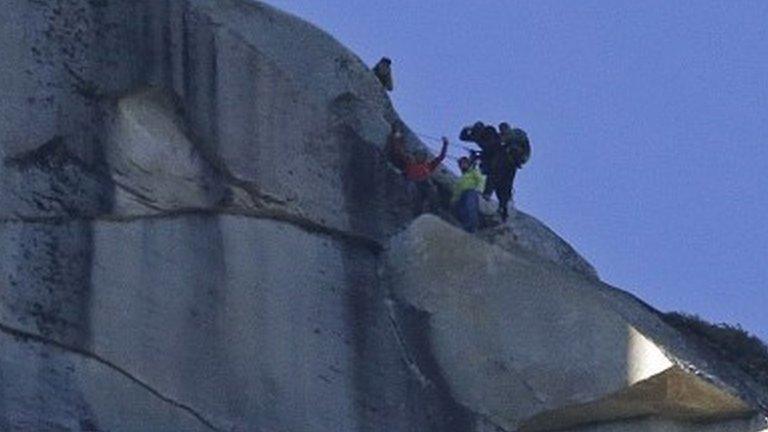
- Published15 January 2015
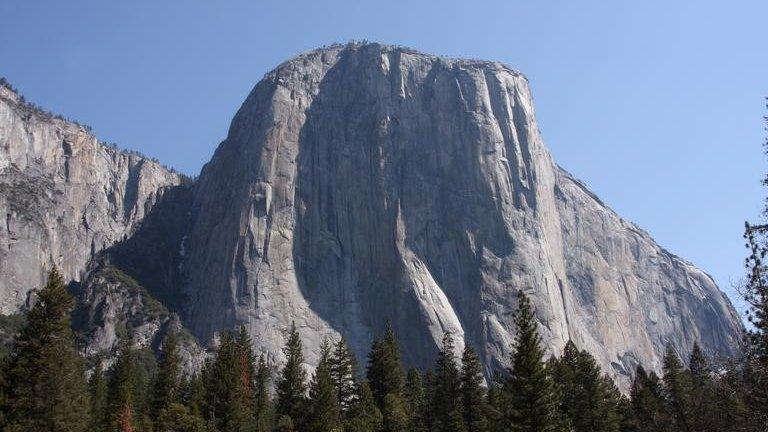
- Published15 January 2015
